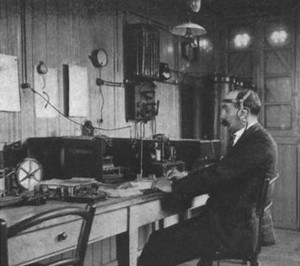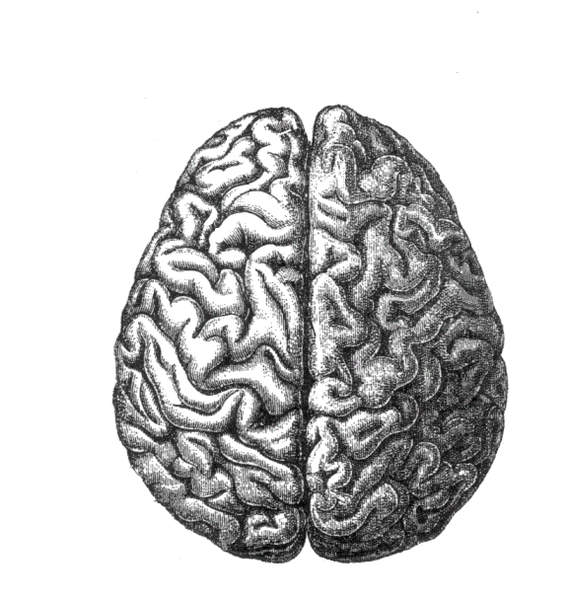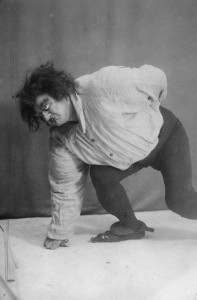While “softening of the brain” refers to the degeneration of tissue in the cerebellum, it seemed to be a catch-all phrase to explain a variety of different types of ailments in the 19th century. The following articles from the Brooklyn Daily Eagle focus on those afflicted by this vague, nebulous disorder.
••••••••••
“Hoadley D. Ives’ Precarious Condition” (March 11, 1894): “New Haven, Conn.–The condition of Hoadley D. Ives, the millionaire financier, who became suddenly ill yesterday, is very critical. Dr. Russell, his physician, says he has softening of the brain, and, while he is not now confined to his bed, his death is likely to occur at any moment. He is not violent to-day, but this morning insisted upon going out to feed his chickens. He is the wealthiest man in New Haven and is a leading director in two or three banks and has important business connections with almost every large enterprise in the city.”
••••••••••
“Death of Jacob Gius” (August 12, 1887): “About midnight Jacob Gius, of Jamaica, died from softening of the brain. He kept an oyster saloon in the village for twenty years, and was known to hundreds of Brooklynites. Domestic troubles and drink destroyed his mind.”
••••••••••

"Richard Waycott, a prominent telegraph operator and a well known resident of this city, died yesterday of softening of the brain."
“Death of Richard Waycott” (February 9, 1893): “Richard Waycott, a prominent telegraph operator and a well known resident of this city, died yesterday of softening of the brain. He was born in Canada but came to this country when a young man. He held several responsible positions for the Western Union Telegraph company until about a year ago, when he was attacked with the dread disease which necessitated his removal to a sanitarium. Mr. Waycott was past master of Commonwealth lodge No. 400, F. and A. M., and was a prominent figure in masonic circles. He was about 30 years old and leaves a wife and a child.”
••••••••••
“Insanity Consequent on Sunstroke” (February 10, 1882): “One of the unfortunate results of the reviews held here last Summer was the number of cases of sunstroke. It happened on one occasion when one division was called out to Prospect Park and the thermometer was high up in the nineties. The hot spell came suddenly, and the men were overdressed and they were speedily overheated and some of them succumbed to sunstroke. One of the unfortunates, Mr. Henderson, of the Forty-Seventh Regiment, has since developed one of the most dangerous consequences, namely, irritation of the brain, which manifests itself in insane delusions. It is sincerely to be hoped that he has fallen into the hands of an able medical practitioner, for under such circumstances only can a permanent cure be expected. The specific effect of overheating is to produce a slight cerebral irritation, which is not immediately allayed. Even under treatment the patient is for two years liable to the recurrence of symptoms–predisposed, in fact, to inflammation of the brain. But with intelligent watchfulness the worst effects can be avoided and permanent recovery accomplished. Sometimes, where the progress of the inflammation is not arrested, softening and sloughing away of the brain matter ensue, ending in paralysis and insanity.”
••••••••••
“Hanged an Insane Man” (July 3, 1893): “Reading, Pa.–It appears from the report of the physicians who made an examination of the brain of Buccieri, who was hanged on Thursday, that his mind was diseased, and that he was not responsible for the crime for which he was executed.
In the report they say that the third membrane was markedly congested; an area of softening was found in the left hemisphere, and the entire left lobe of the cerebellum was softened to such an extent as to diminish the tracings of the well known lines of the brain. In one portion they found at least a dozen cysts, some of them as large as a pea, and several calcareous deposits. This report has created quite a sensation.
It is now said that a number of those in charge of the prisoner were convinced that he was insane. The priests who attended his spiritual needs felt so.”


